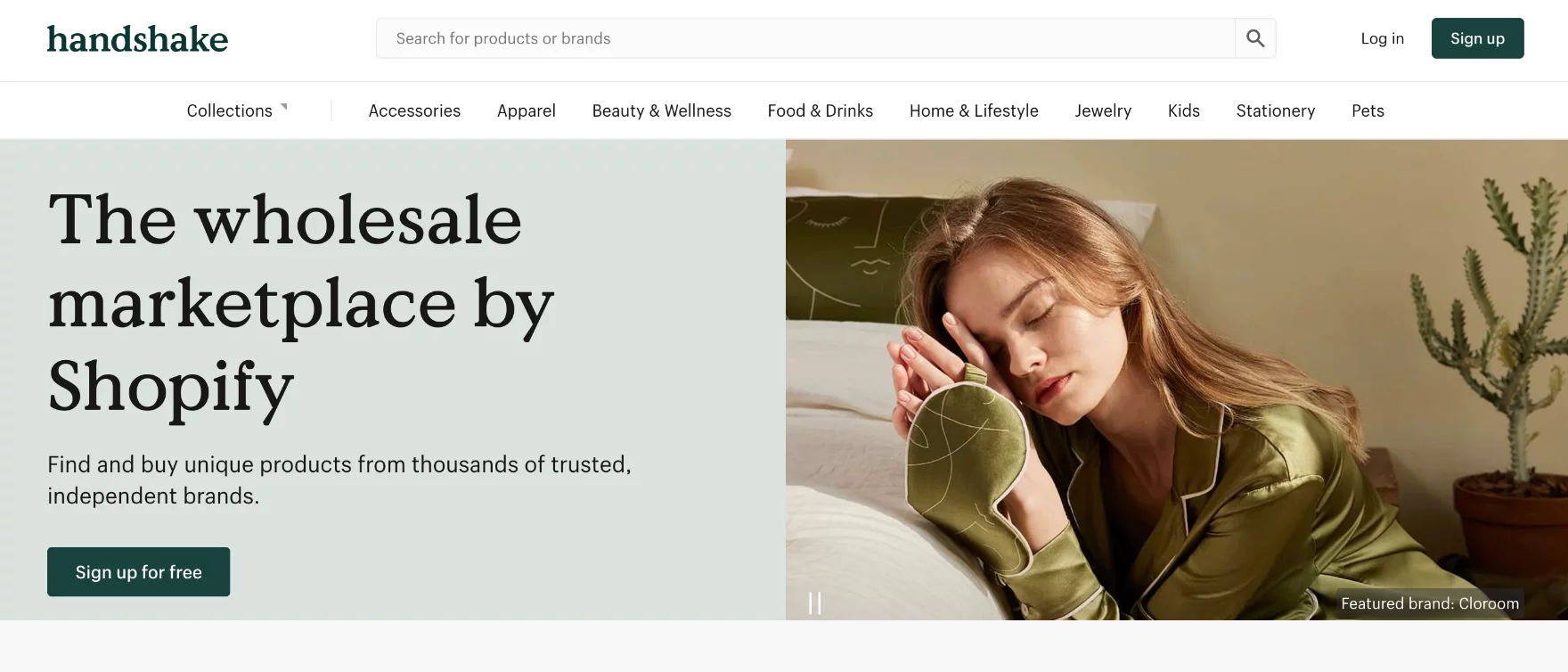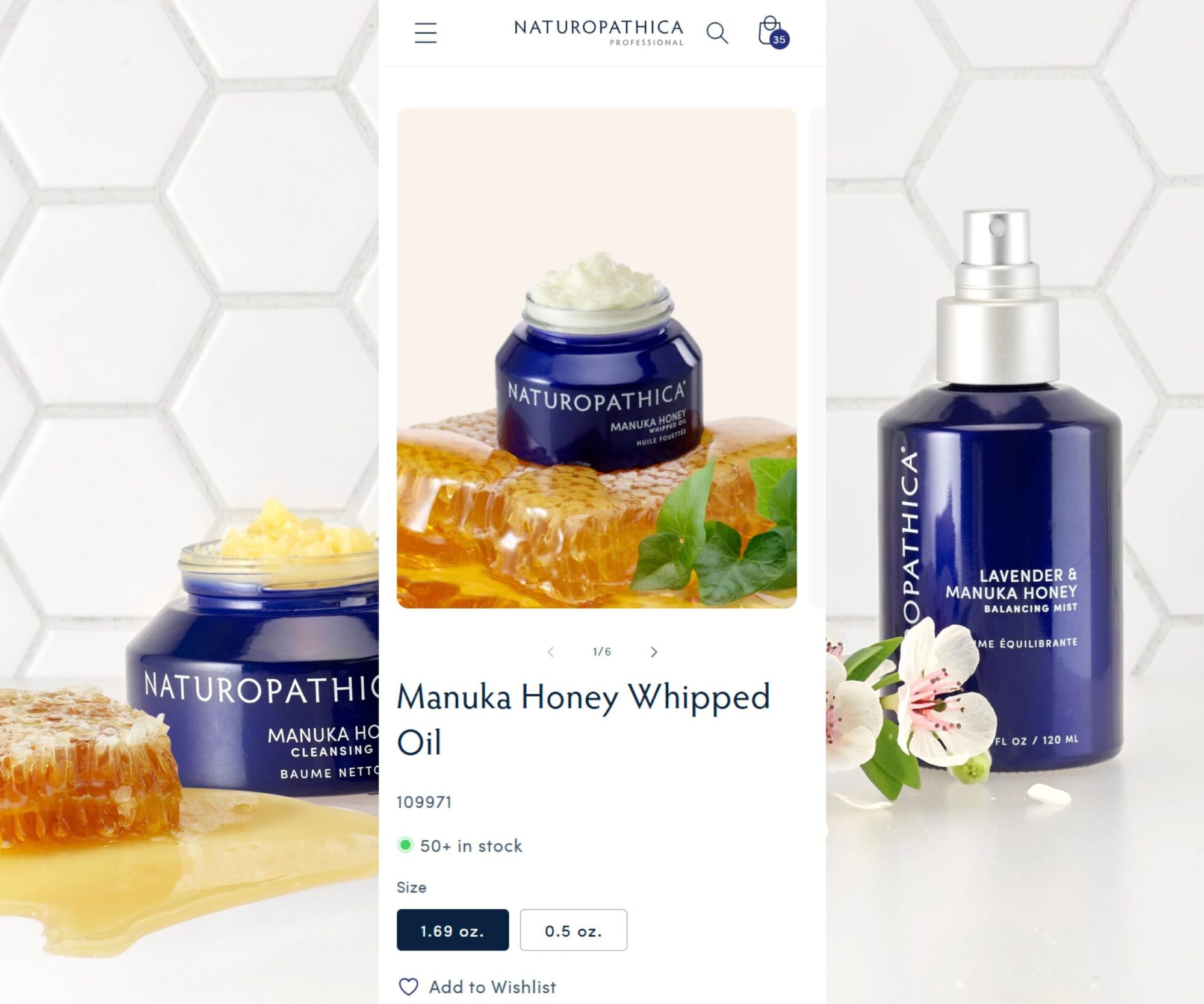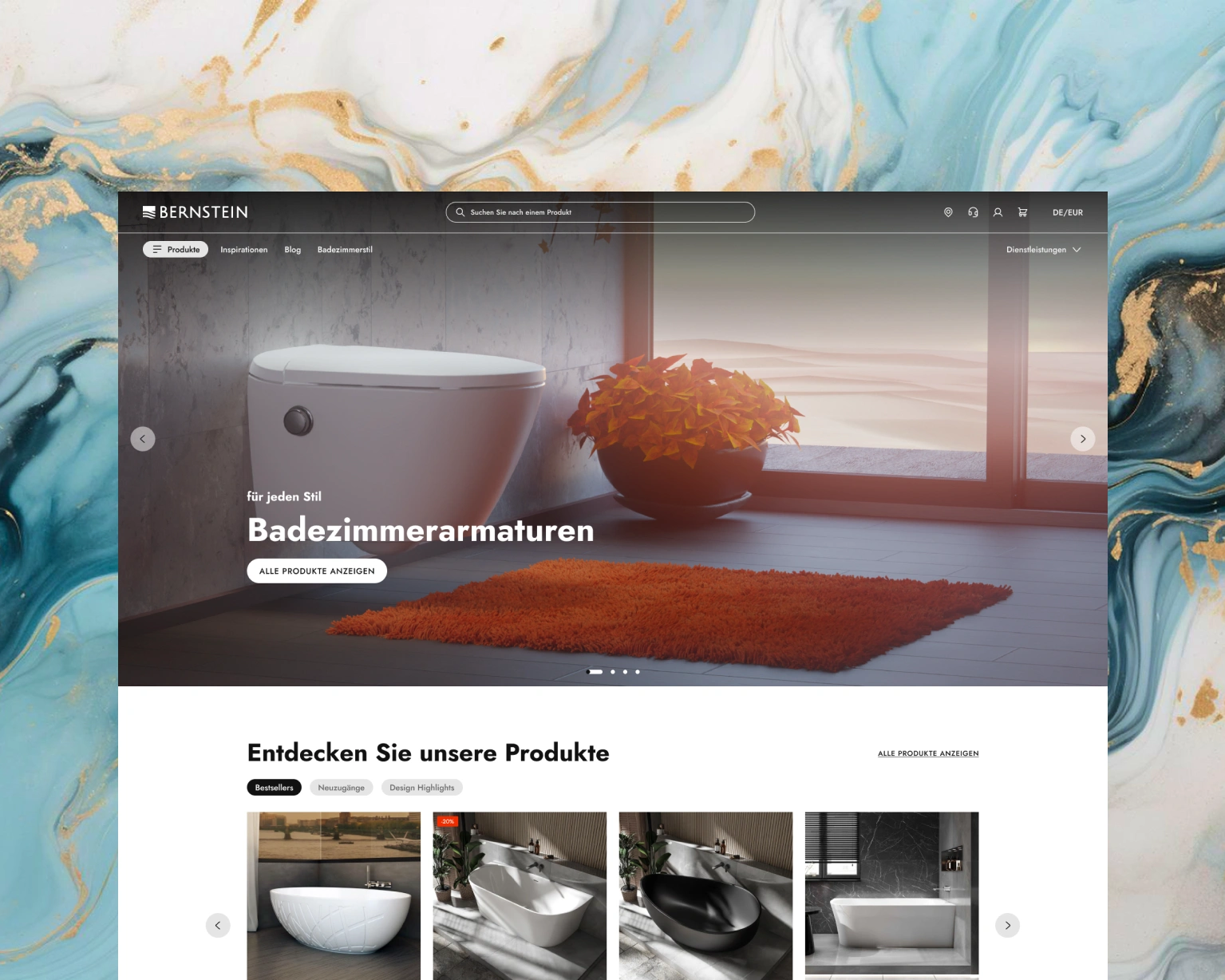Cursor Label

Shopify B2B / Wholesale Channel
Book a meeting

They trusted us


















The wholesale channel on Shopify is a set of features that make it easier to conduct business-to-business transactions online.
It enables B2B sales directly from the Shopify e-commerce platform, eliminating the need for third-party integrations. It provides fully customisable features, including discounts, custom themes, and APIs. Typically, the wholesale channel setup includes standard features such as customer-specific pricing, bulk ordering, and streamlined account management.

Why do you need it?
01
Simplified Store Management
Manage retail (DTC) and wholesale customers, inventory, orders, and data from a single, unified Shopify platform (blended stores).
02
Flexible Pricing & Quotas
Easily create custom pricing systems, volume discounts, wholesale price lists for different customer groups, and password-protected quotas.
03
24/7 Order Access
Customers can access your wholesale order center 24/7, enabling you to capture sales across different time zones and international markets.
04
Modern DTC-like UX/UI
Leverage the attractive design, UX/UI, and powerful features of your retail store to provide a superior, streamlined buying experience for B2B customers.
05
Fast Implementation & Setup
Save time and money by using your existing Shopify Plus setup for B2B; implementation is faster than many third-party solutions.
06
Seamless System Integration
Shopify easily connects with core systems like ERP, CRM, and inventory management, ensuring a smooth, tailored data flow across your tech stack.

Why is it worth to work with us?
Experience
200+
Relised Shopify projects
Team
50+
Shopfiy Experts in the team
"Their professionalism, commitment, and flexibility made the migration to Shopify Plus and the development of the platform smooth and seamless."
Daria Żornaczuk
E-commerce Specialist

Tailored services
for your Business
We know Shopify like the back of our hands. We can clearly assess the time and resources that you need to deliver you the result you want.

Our Shopify Plus Development Case Studies
The B2B market went through a revolution. According to Digital Commerce 360, in 2023, U.S. B2B e-commerce sales reached approximately $2.1 trillion, marking a 17% increase from the previous year. This growth significantly outpaced the overall U.S. business sales, which remained flat at $14.87 trillion in the same period.
The wholesalers are also coming online. And Shopify doesn’t leave them in this alone. In 2017, Shopify launched its own B2B channel to let merchants sell their products to businesses and retailers. In the years since then, the platform has evolved a lot, giving all stakeholders the complete solution now. Shopify now offers out-of-the-box B2B features that streamline store setup, making it easy for merchants to quickly launch and manage their online wholesale stores.
B2B Shopify wholesale channel – what is it?
B2B customers logging in can also benefit from processes that include company account requests or request for quote features, which help streamline onboarding and sales.
Currently, Shopify offers two ways to start selling wholesale.
Blended and dedicated stores
Shopify allows merchants to target both DTC and B2B customers, offering the flexibility to run both segments within the same store. A blended store is literally a blend of two functions of the store that cater to both B2B and direct-to-consumer (DTC) customers. With a blended setup, merchants can manage both DTC and B2B sales in the same store, streamlining operations and providing a unified experience for all customer types. A dedicated store is one that is aimed solely at B2B customers.
Let’s take a closer look at both of them.
Blended stores
A blended store is the extension of your main store if you want to expand to B2B sales. B2B buyers can get into their wholesale account to access wholesale price lists and payment terms. You can use it for both B2B and DTC sales if you do not want to differentiate between them.
Dedicated stores
It is also possible to build a dedicated wholesale store. The option is especially useful if you want to differentiate between B2B and DTC customers and have more customised options that work exclusively for B2B customers.
Note: To get started, B2B customers must log in to their new customer account using a one-time code sent via email. Once authenticated, customers will be able to manage their account, select their company location for orders, edit buyer information, and view/filter their order history.
How Much Do Shopify B2B and Wholesale Cost?
All B2B features are available only on the Shopify Plus plan. With a price tag of $2300-2500/month (and potentially even more as your revenue increases), you get a dedicated channel specifically built for wholesaling. Shopify Plus offers specific pricing options for B2B customers, such as customer-specific pricing rules and product-specific pricing, allowing for tailored pricing strategies. The Shopify Plus plan typically includes advanced customisation and automation options through various Shopify apps, as well as additional support and features designed for B2B merchants.
In addition to Shopify’s built-in features, there are fantastic apps like SparkLayer, which offer a 14-day free trial and plans starting from $49 per month. These apps empower merchants to create custom integrations, manage wholesale pricing, and tailor the online store experience for different customer segments.
If your business requires more advanced solutions, such as building custom integrations with ERP or accounting systems, the cost will vary based on the complexity of the integration and developer fees. However, the investment in these integrations can pay off by streamlining business operations and providing a seamless experience for both merchants and customers.
Whether you’re just starting out or scaling your wholesale channel, Shopify’s flexible pricing and robust app ecosystem make it easy to find the perfect solution for your business.
Handshake – Shopify wallet-friendly alternative
If you do not have the budget for the Shopify Plus pricing plan, there’s one more way in which you can sell to businesses – the Handshake marketplace.

Basically, it’s an app that connects retailers to approved Shopify store owners and allows merchants to sell their products to them. Shopify Marketplace also has a few apps that you can use to create special pricing lists and give discounts to different wholesale customers, for example, B2B pricing solutions or Wholesale Club.
If you’re a small business looking to get a taste of B2B and wholesale, Handshake’s wholesale app is a great way to start out. They won’t provide you with all the benefits of having a customised channel, but for those just wanting to “test the waters”, it’s a great alternative.
What are the features of a Shopify B2B and wholesale channel solution?
Shopify’s wholesale and B2B channel solutions let you create tailored shopping experiences your customers will love. These solutions also include advanced shipping features designed for business customers, such as specialised shipping rules and integrations. Keep reading to learn more about the features you can get at your fingertips.
Personalised B2B store
You can get a separate, dedicated storefront, or create a blend of DTC and B2B stores, protected with a password. You choose which option suits you more. If you don’t want to make the store visible through search engines, it’s possible either – wholesale access is only available to registered buyers.
- Create a personalised wholesale buying experience with your online store theme
- Customise delivery and payment logic right in the checkout
- Build the solution you need with the Shopify suite of B2B APIs and compatible apps
Custom pricing & order limits
With Shopify Plus, you have full control over pricing in your B2B store. The subscription allows you to customise the prices, so they’re exactly what you need. Furthermore, you can use the pricing lists to offer a special discount to your most loyal customers – as a way of saying “Thank you.”
- Set fixed wholesale prices for products
- Set percentage-based or volume-based discounts
- Set minimum & maximum quantity order limits
- Create multiple price lists with different prices for specific customers or customer groups
B2B customer self-serve dashboards
Spend less time managing orders. Shopify wholesale provides customers with an account and dashboard to purchase, track & reorder 24/7 without having to speak to you.
- Provide your customers with access to all current and past information, such as order status, tracking number, or invoices
- Give your customers the ability to manage their account easily (add and edit buyer information, as well as view and filter order history)
- Improve the ease of reordering to encourage customers to buy more products
Payment terms
Automate the process of assigning payment terms while tracking orders. With Shopify, you can have all payment terms in one place and reduce manual work to the bare minimum.
- Send a customised invoice email that asks for payment using alternative payment options, such as a wire transfer
- Enable customers to securely store cards on file or in their account & speed up payment processes
- Accept payment via Afterpay, which will allow clients to pay in instalments and automatically collect payments
- Assign a company with a specific payment term
Managing B2B Customers on Shopify
Effectively managing B2B customers on Shopify means understanding their unique needs and delivering a tailored experience. Shopify equips merchants with powerful features to segment customer groups, set up custom pricing, and offer net terms, ensuring each b2b customer receives the right pricing and payment options.
Sales reps can be granted access to the Shopify store, allowing them to manage customer relationships and place orders on behalf of their clients. This not only streamlines the sales process but also helps build stronger business connections.
Leveraging customer data is key to personalising the shopping experience. Merchants can use insights from customer behaviour to offer targeted promotions, discounts, and special pricing, making each interaction more relevant and valuable.
Shopify’s seamless integration with other business operations, such as ERP and inventory management, means you can manage your b2b customers, pricing, and orders all in one place. This integration streamlines processes, reduces manual work, and ensures your business runs smoothly from order placement to fulfilment.
Streamlining B2B Workflows for Efficiency
Efficiency is at the heart of successful B2B commerce, and Shopify provides a suite of features designed to streamline wholesale workflows. Automated processes, such as draft orders and flexible payment types, help merchants save time and reduce errors when managing b2b customers and orders.
Custom integrations can connect your Shopify store with essential business operations like ERP and accounting systems, ensuring data flows seamlessly between platforms. This connectivity empowers you to manage multiple stores and customer accounts from a single dashboard, simplifying operations and cutting down on administrative costs.
Shopify’s intuitive storefront and inventory management features make it easy to keep track of stock levels, process orders, and handle payments – all while providing a smooth experience for your customers. By automating routine tasks and centralising business operations, you can focus on growth and delivering exceptional service to your wholesale clients.
B2B on Shopify – pricing plan details
Now, a bit further about how much the wholesale channel (or rather, Shopify Plus subscription) will cost you.
Regular Shopify offers three flat-rate e-commerce plans, which cost $32, $92, and $399 per month, respectively. Shopify Plus, meanwhile, charges you based on the monthly sales volume. At least, you can expect to pay $2,500 per month for using Shopify Plus (or $2,300 on a 3-year contract).
In comparison to the cost of a regular Shopify subscription, the price of a Plus subscription might seem high, but the Plus subscription offers many extra benefits for businesses that justify the high cost.
If you’re looking for more scoop membership perks of Shopify Plus development, check out this article.
Let us take your Shopify B2B website off the ground
Want to make the switch to Shopify Plus but feel in over your head? With the help of our Shopify Plus agency, you can make your B2B store seamless.
We’ve helped several brands move to Shopify Plus or build their first B2B store.
💡For example, we built the first Polish Shopify B2B store for an industrial shoe manufacturing brand and helped them connect their favourite third-party apps to Shopify.
Let us leverage our 5+ years of experience in the Shopify B2B e-commerce space and transfer your data easily. Whether you need assistance with integrating your favourite tools and apps, customising the storefront, or working on your store’s strategy, our team is ready to help.
The future of e-commerce B2B buyers now purchase 67% of their products online. They change the way they supply their shops. This means that having a B2B store can help you capture more of the market. And Shopify goes to meet these changes.
Shopify has recently launched new features that open up even more possibilities for expanding into B2B – signalling that their wholesale development strategy is in the works.
With Shopify’s custom-built B2B features, customers can easily manage orders, set up payment plans, and access pricing information. This makes it easy for the customer to order in bulk without having to contact you. It’s a win-win – you get more orders, and the customer gets a streamlined purchase experience.
Make your B2B store stand out from the competition – contact us today and let us help you make your vision a reality.
Frequently Asked Questions
We delivered results for many types of Shopify brands. We have gained a deeper understanding of Shopify's challenges. Our experience makes us excellent project managers who can clearly see what lies ahead.
01
Is Shopify b2b or b2c solution?
Both, actually. While Shopify is most well-known as a platform that allows anyone to start their own store and sell their products to anyone, it also has a dedicated channel for B2B and wholesale. The latter one is only available through a Shopify Plus subscription.
02
How many Shopify stores can you have on one account?
That depends on whether you are on a regular Shopify subscription or Plus. A basic Shopify subscription allows you only to have one shop per account. On Plus meanwhile, you can have up to 9 additional stores for free – and later, you can add more for a fee. That’s one of the things that sets a Plus subscription apart from the basic Shopify account.
03
Is Shopify good for selling wholesale?
Definitely yes! Shopify’s dedicated wholesale and B2B solution has plenty of useful features and apps you can use as a B2B seller – for example, customised pricing and invoices or special shipping costs.
04
How to set up a wholesale Shopify store?
To take advantage of all the benefits of the Shopify wholesale solution, you need first to buy a Shopify Plus subscription and migrate your shop to Plus. Then, you have to decide whether you want a blended or dedicated store. If you already have a Shopify store, then moving to Plus should not be a problem. However, if you’re moving from another platform or starting from scratch, it’s best to hire a Shopify agency to help you transfer the data, customise the store layout, and set up the wholesale store. Fill out our contact form, and let’s talk. We’re happy to help.
05
What are the alternatives to Shopify Plus for wholesale ecommerce?
If you’re just starting out selling to businesses or don’t have enough revenue from your existing store to justify a $2,500-a-month Shopify Plus subscription, there are other ways to get started.
1. Create discount codes that you will give only to wholesale customers or to specific customer groups.
2. Set up a second store where you will only sell wholesale.
3. Use the Handshake marketplace to find retailers or businesses that might be interested in your products.
06
How to manage B2B payments via Shopify?
When you receive payment for the invoices, those will be marked on the Shopify admin page as paid – the same place as your retail data.
For smaller purchases (such as product samples), you can also allow the buyers to pay directly at the checkout without going with the order review. You can also limit how much a customer can order before needing to submit the order review.
For example, if you want to let your wholesale clients pay at checkout for orders under $100, set the maximum order amount to $100. Then, the customer can pay for the order at the checkout when the order is under $100 without the hassle of going through the order review. If their order exceeds $100, though, then the customer will have to submit a draft order for you to review.
1. Create discount codes that you will give only to wholesale customers or to specific customer groups.
2. Set up a second store where you will only sell wholesale.
3. Use the Handshake marketplace to find retailers or businesses that might be interested in your products.




